China’s Schindler
- By Guest blogger
- 23 March, 2016
- No Comments
This article, by Dirk de Klein, was originally carried on his website. It is reproduced here with his kind permission.
Ho Feng-Shan (born September 10, 1901 in Yiyang, Hunan; died September 28, 1997 in San Francisco) was a Chinese diplomat in Vienna who risked his own life and career during World War II to save thousands of Jews. Ho’s actions were recognized posthumously when the Israeli organization Yad Vashem in 2000 decided to award him the title “Righteous among the Nations”
After Austria’s annexation to Nazi Germany in March 1938, the 185,000 Jews there were subjected to a severe reign of terror, which resulted in intense pressure to leave the country. In order to do so, the Nazis required that Jews have entry visas or boat tickets to another country. However, the majority of the world’s nations refused to budge from their restrictive immigration policies, a stance reaffirmed at the Evian Conference, in July 1938.
The Évian Conference was convened from 6–15 July, 1938, at Évian-les-Bains, France, to discuss the Jewish refugee problem and the plight of the increasing numbers of Jewish refugees fleeing persecution by Nazi Germany. It was convened at the initiative of United States President Franklin D. Roosevelt who perhaps hoped to obtain commitments from some of the invited nations to accept more refugees, although he took pains to avoid stating that objective expressly. It was true that Roosevelt desired to deflect attention and criticism from American policy that severely limited the quota of Jewish refugees admitted to the United States.
The conference was attended by representatives from 32 countries, and 24 voluntary organizations also attended as observers, presenting plans either orally or in writing.Golda Meir, the attendee from British Mandate Palestine, was the only representative of a landed Jewish constituency, but she was not permitted to speak or to participate in the proceedings except as an observer. Some 200 international journalists gathered at Évian to observe and report on the meeting.
The dispossessed and displaced Jews of Austria and Germany were hopeful that this international conference would lead to acceptance of more refugees and safe haven. “The United States had always been viewed in Europe as champion of freedom and under her powerful influence and following her example, certainly many countries would provide the chance to get out of the German trap. The rescue, a new life seemed in reach.
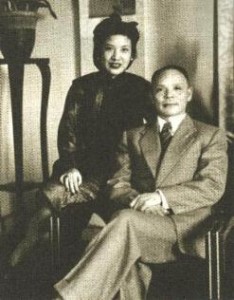 Hitler responded to the news of the conference by saying essentially that if the other nations would agree to take the Jews, he would help them leave:
Hitler responded to the news of the conference by saying essentially that if the other nations would agree to take the Jews, he would help them leave:
“I can only hope and expect that the other world, which has such deep sympathy for these criminals [Jews], will at least be generous enough to convert this sympathy into practical aid. We, on our part, are ready to put all these criminals at the disposal of these countries, for all I care, even on luxury ships.”
The conference proved a failure because both the United States and Britain refused to accept any (substantially) more refugees, and most of the countries at the conference followed suit. The conference was seen by some as “an exercise in Anglo-American collaborative hypocrisy.”
In 1935, Ho started his diplomatic career within the Foreign Ministry of the Republic of China. His first posting was in Turkey. He was appointed First Secretary at the Chinese legation in Vienna in 1937. When Austria was annexed by Nazi Germany in 1938, and the legation was turned into a consulate, Ho was assigned the post of Consul-General.
After the Kristallnacht in 1938, the situation became rapidly more difficult for the almost 200,000 Austrian Jews.
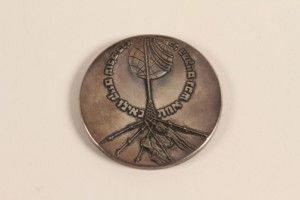
Feng-Shan Ho, the Chinese Consul-General in Vienna, was given the title of Righteous Among the Nations for his humanitarian courage in issuing Chinese visas to Jews in Vienna in spite of orders from his superior to the contrary.
The only way for Jews to escape from Nazism was to leave Europe. In order to leave, they had to provide proof of emigration, usually a visa from a foreign nation, or a valid boat ticket. This was difficult, however, because at the 1938 Évian Conference 31 countries (out of a total of 32, which included Canada, Australia, and New Zealand) refused to accept Jewish immigrants. The only country willing to accept Jews was the Dominican Republic, which offered to accept up to 100,000 refugees.Acting against the orders of his superior Chen Jie, the Chinese ambassador to Berlin, Ho started to issue visas to Shanghai, part of which during this time was still under the control of the Republic of China, for humanitarian reasons. 1,200 visas were issued by Ho in the first three months of holding office as Consul-General.
At the time it was not necessary to have a visa to enter Shanghai, but the visas allowed the Jews to leave Austria. Many Jewish families left for Shanghai, whence most of them would later leave for Hong Kong and Australia. Ho continued to issue these visas until he was ordered to return to China in May 1940. The exact number of visas given by Ho to Jewish refugees is unknown. It is known that Ho issued the 200th visa in June 1938, and signed 1906th on October 27, 1938. How many Jews were saved through his actions is unknown, but given that Ho issued nearly 2,000 visas only during his first half year at his post, the number may be in the thousands.
Unlike his fellow-diplomats, Ho issued visas to Shanghai to all requesting them, even to those wishing to travel elsewhere but needing a visa to leave Nazi Germany
Many of those helped by Ho did indeed reach Shanghai, either by boat from Italy or overland via the Soviet Union. Many others made use of their visas to reach alternate destinations, including Palestine, the Philippines, and elsewhere, such as the parents of Secretary-General of the World Jewish Congress and Vice Chairman of the Yad Vashem Council, Dr. Israel Singer, who traveled to Cuba.
Ho was posthumously awarded the President’s Citation Award from Taiwanese President Ma Ying-jeou, on September 12, 2015. Ho’s daughter, Manli, accepted the award on his behalf. President Ma Ying-jeou stated that this honor was “long-delayed,” and spoke of Ho’s bravery at a dedication ceremony.
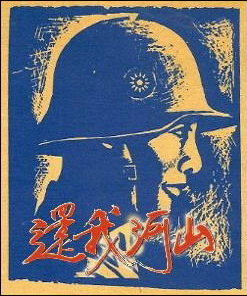
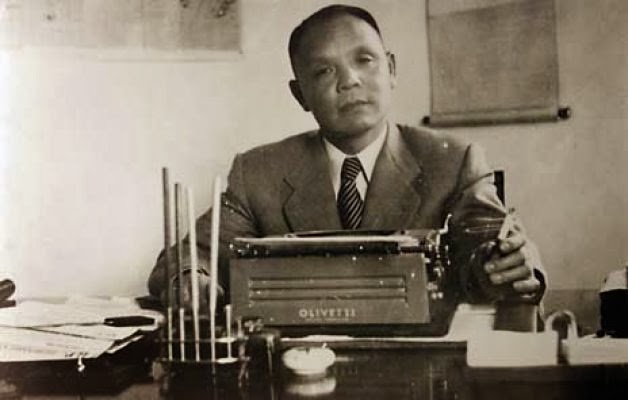
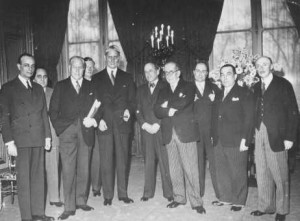


 Copyright © 2025
Copyright © 2025
Leave a Reply